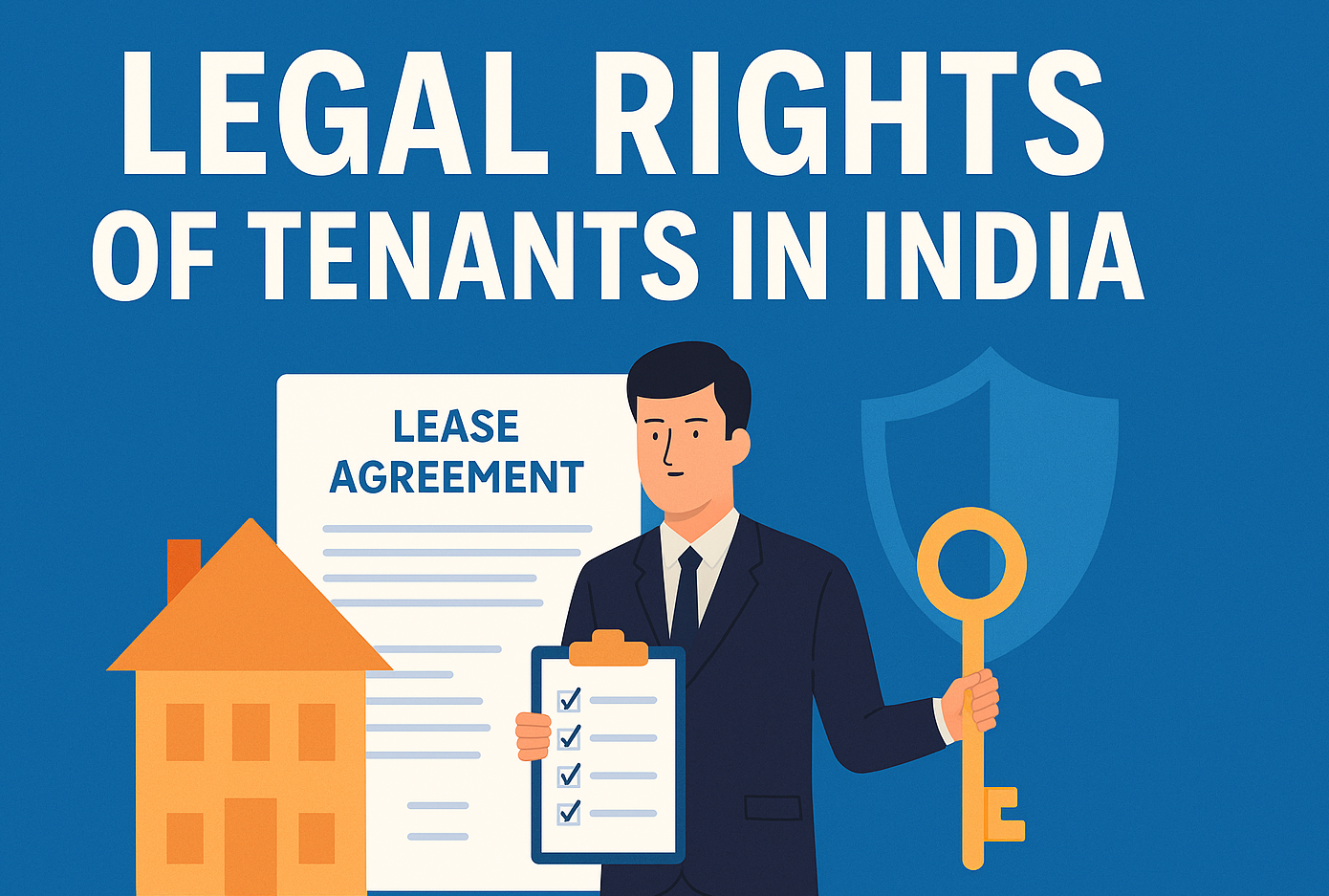Understanding the Legal Rights of Tenants in India 2025
The legal rights of tenants in India in 2025 are more relevant than ever, especially as rental housing grows across urban and semi-urban centers. With evolving housing markets and rising rent disputes, many tenants are unaware of their fundamental protections under the law. This guide explains what landlords legally cannot do, the eviction process, notice periods, and state-level changes under the Model Tenancy Act.
Core Legal Protections Every Tenant in India Should Know
The legal rights of tenants in India apply whether or not a written lease exists. These rights are rooted in a combination of legacy Rent Control Acts and new provisions under the Model Tenancy Act (MTA).
- Right to Fair Rent: Landlords must charge rent as agreed upon in writing or orally. Arbitrary hikes are not enforceable without advance notice.
- Right to Privacy: A landlord cannot enter the rented premises without the tenant’s consent, except in emergencies.
- Right to Habitable Conditions: Every tenant is entitled to a structurally safe living space with basic services like water, electricity, and sanitation.
- Right to Notice Before Eviction: Tenants must receive prior written notice, typically 30 to 60 days, before eviction.
- Right to Deposit Refund: Security deposits must be returned in a reasonable time after deductions are explained.
Can Landlords Increase Rent Without Written Notice?
No, they cannot. The legal rights of tenants in India mandate that any rent increase must come with prior written notice. Under most state laws and the Model Tenancy Act, landlords are required to provide at least 30 days’ written notice.
For monthly leases, a 30-day notice is standard. For fixed-term agreements, rent cannot be revised mid-term unless explicitly mentioned in the contract.
Tenant Rights Without a Rent Agreement
Even without a written lease, the tenant still has enforceable rights:
- Oral/verbal agreements are valid under Indian law.
- Landlords must follow standard eviction procedures.
- Basic tenant protections privacy, notice, and deposit refund still apply.
While having a formal agreement helps resolve disputes faster, lack of one doesn’t nullify your tenancy rights.
Eviction Process and Illegal Landlord Practices
Eviction laws are governed by state acts, but some core principles remain the same:
Grounds for Legal Eviction:
- Non-payment of rent
- Subletting without permission
- Illegal use of premises
- Damage to property
Required Procedure:
- Landlord must issue a written notice
- Case must be filed with the rent authority or court
- Eviction must be enforced through legal means only
Illegal Practices:
- Locking out tenants
- Harassing or threatening tenants
- Disconnecting water or electricity supply
All of the above are punishable offences under various civil and criminal laws.
Statewise Tenant Rights Under the Model Tenancy Act
As of 2025, the Model Tenancy Act has been adopted by some states, leading to standard protections across key regions.
| State | Adopted MTA? | Key Provisions |
|---|---|---|
| Tamil Nadu | Yes | 2-month security deposit cap, mandatory written agreement |
| Uttar Pradesh | Yes | 30-day notice required for rent hikes and eviction |
| Andhra Pradesh | Yes | Rent disputes handled via rent authorities |
| Assam | Yes | Unified rent and eviction framework |
| Maharashtra | No | Still follows Rent Control Act; fewer uniform protections |
| Delhi | No | Governed by Delhi Rent Control Act |
Tenants in non-MTA states should review their respective Rent Control Acts, which may offer either stronger or weaker protections.
Frequently Asked Questions (FAQs)
Can a landlord raise rent without informing me?
No. Written notice is mandatory under almost every rental law in India.
What if there is no written rental agreement?
You are still legally protected. Document all verbal communication and retain proof of payment.
What if a landlord tries to forcefully evict me?
Call the police, document the event, and file a complaint with the local rent authority.
How do I file a complaint as a tenant?
Approach the rent authority or consumer court with evidence like payment receipts, text communications, or witnesses.
Steps to Take If Your Rights Are Violated
- Collect Evidence: Record conversations, save rent receipts, and take photos.
- File a Formal Complaint: Send a written notice to the landlord outlining the violation.
- Approach Legal Authorities: Contact your state’s rent authority or file a complaint in a local consumer court.
- Legal Aid: Seek help from local legal aid or tenants’ rights NGOs.
Awareness Is Your First Line of Defense
Understanding the legal rights of tenants in India in 2025 gives renters the confidence and legal footing to protect their homes. Whether you’re in a city that has adopted the Model Tenancy Act or still governed by legacy laws, your rights include protection against arbitrary rent hikes, illegal evictions, and harassment.
With housing insecurity on the rise, knowledge of your rights is no longer optional it’s essential. Ensure you have written documentation, maintain open communication, and never hesitate to seek legal recourse when your rights are threatened.
This guide is your starting point to assert those rights and protect your dignity as a tenant in modern India.
Also Read : Difference Between Will and Gift Deed in India: A Complete Legal Guide for 2025

1 thought on “Hidden Tenant Rights in India 2025: Statewise Laws and What Landlords Legally Cannot Do”